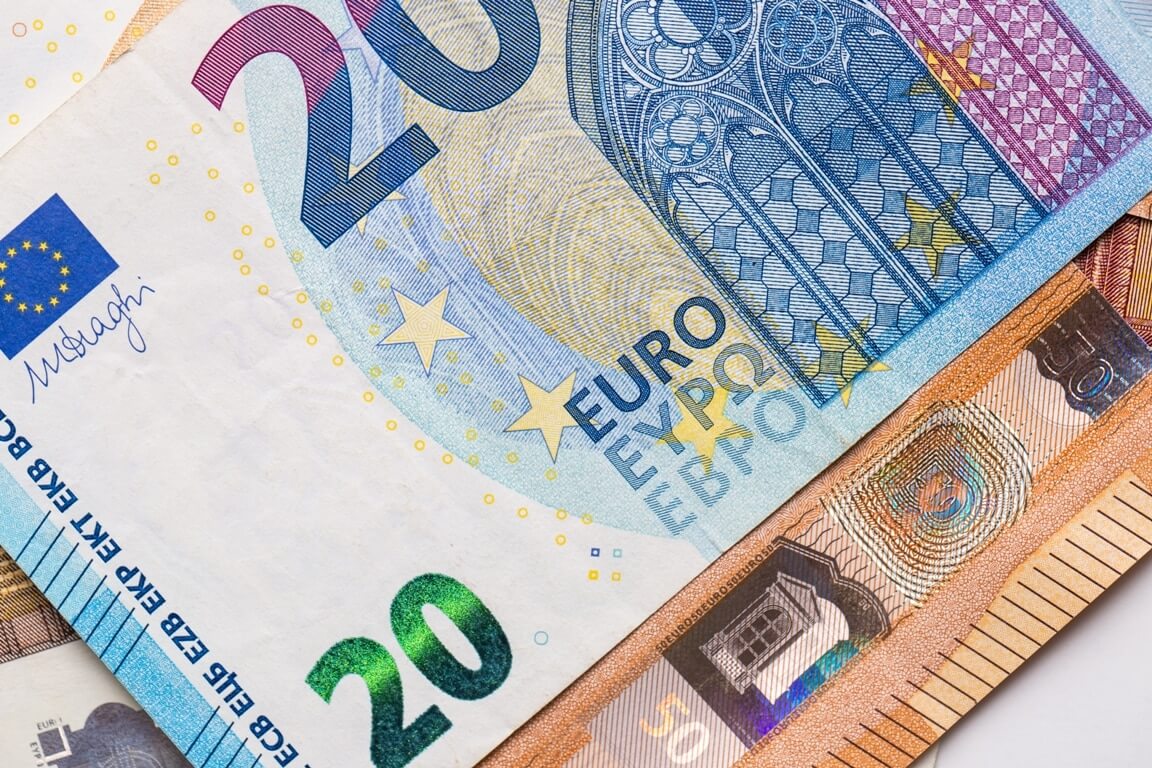Euro rallied Wednesday while dollar and Aussie declined

Euro rallied Wednesday while dollar and Aussie declined
The euro rebounded on Wednesday after declining due to the risk-off mood on the markets. The Australian dollar and other riskier currencies also managed to recover against the safe-haven greenback as investors turned more positive about the economic outlook today. Even though Omicron variant cases soared, it hasn’t influenced the market heavily thus far. However, traders are bracing for more volatility in the coming days.
Meanwhile, the Turkish lira steadied. It held its recent gains after a turbulent ride in which the currency surged forward from record lows due to President Tayyip Erdogan’s statement. He announced about taking new steps to guard the citizens’ savings against volatility.
Overall, forex moves were quite small as trading volumes remained thinner ahead of the holiday season. After decreasing earlier in the session, the common currency traded higher by 0.1% at $1.13.
On Wednesday, the Aussie tumbled down as much as 0.4% to $0.7121. The New Zealand dollar also dropped down to $0.6742. However, both currencies recovered slightly later in the session. Improving risk sentiment along with advancing oil and global shares supported them.
How did the British Pound fare?
The Sterling soared by 0.3% to $1.3316 on Wednesday. The new data showed Britain’s economy grew more slowly than investors expected in the July-September period, but this news was insufficient to hinder the Pound’s rally. However, official data showed on Wednesday that the Omicron variant of the coronavirus is posing a further threat to the country’s economic recovery.
In the world’s fifth-biggest economy, gross domestic product increased only by 1.1% in the third quarter. That is weaker than a preliminary estimate of growth of 1.3%. Economists say that global supply chain problems weighed on building firms and manufacturers, causing slower growth. For comparison, the economy bounced by 5.4% in the second quarter when the government lifted many coronavirus restrictions, the Office for National Statistics noted.
On Wednesday, the dollar index declined by 0.1% to 96.317. Nonetheless, it remained well within its recent high ranges. Analysts at ING stated that the weeks before and after Christmas are usually low in volatility for currencies, as well as other asset classes. Still, we should expect some seasonal tendencies to be mixed this year, considering that the Omicron variant is threatening to force new lockdowns and restrictions. Besides, markets are still processing a week full of crucial central bank decisions.
Omicron is keeping investors on edge, with infections multiplying across the United States, Europe, and Asia. Lots of countries across the globe are considering new restrictions on movement. Some of them are even thinking of reimposing quarantine periods for incoming visitors. Despite such dire reports, markets seem more confident that we’ll see only limited economic fallout from Omicron.
How was the Lira trading at last?
Today, Turkey’s lira was firm after climbing up by 6% on Tuesday. Before that, the currency has plummeted down as much as 8.6% and then regained as much as 18.5% in a short period. It traded lower by approximately 1.4% at 12.57 per dollar on Wednesday. However, the lira is still holding most of its gains. The government’s attempt to safeguard deposits boosted it.
Lee Hardman, an analyst at MUFG, noted that the policy action seems like a rate hike for retail deposits, but it will transfer forex risks onto the government’s balance sheet. Still, the plans likely won’t buy the government much time before the lira resumes its decrease. Only a fundamental shift to tighter policy settings would restore stability.
Meanwhile, the Thai baht remained steady, even though it stood near a two-week low on Wednesday. The central bank kept its interest rate unchanged as traders expected, pushing the currency lower. On the other hand, the Indonesian rupiah skyrocketed to its highest level in almost four weeks thanks to the renewed appetite for risk assets.
Other EM currencies were largely mixed as stock markets rallied with improved risk appetite. Earlier in the session, the Thai baht tumbled down as much as 0.4% to 33.80 per greenback, reaching its lowest point since December 7, but the currency barely moved after that.
Overall, the Indonesian rupiah gained 0.3%, reaching its highest level since mid-November. Ten-year benchmark yields decreased to 6.400%, though. On Wednesday, the South Korean won strengthened slightly after dropping for two straight days. Singapore’s dollar and Malaysian ringgit declined as well, while the Philippine peso lost 0.4%.
The post Euro rallied Wednesday while dollar and Aussie declined appeared first on FinanceBrokerage.
0 Response to "Euro rallied Wednesday while dollar and Aussie declined "
Post a Comment